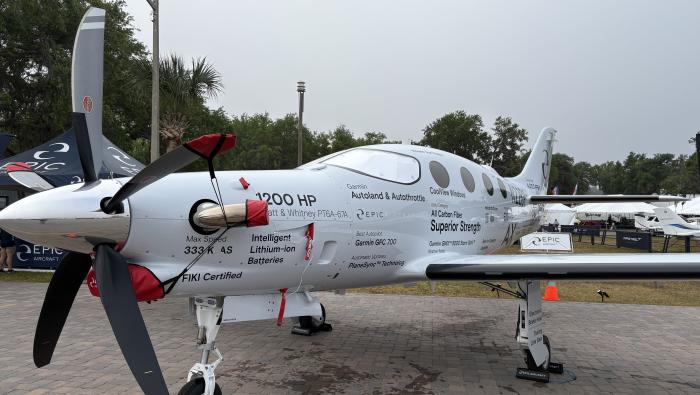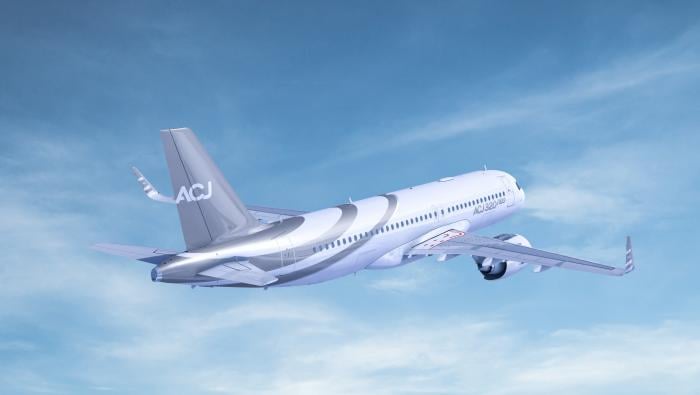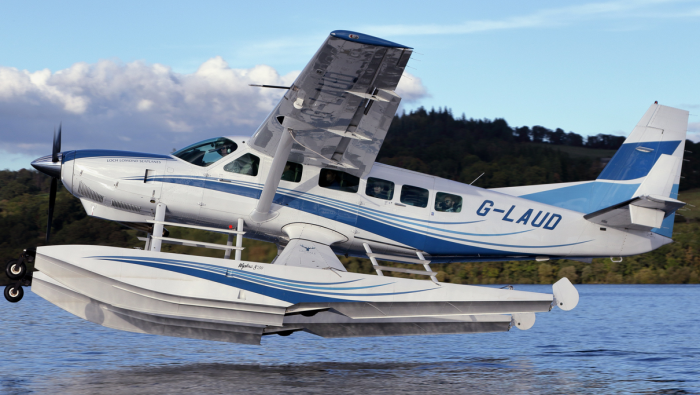With five G700 ultra-long-range jets now in the flight test program, Gulfstream Aerospace has wrapped up many of the tests required for certification of its new $75 million flagship as the company proceeds toward service entry in 2022.
Gulfstream unveiled the new model, which will sit on top of its product line with a five-living-area cabin and a 7,500-nm range, during last year’s NBAA-BACE in Las Vegas, and flew the first flight test vehicle just four months later on Valentine’s Day. Since then, four more G700s have been added to the flight-test program, with T5 taking to the skies last month.
“The G700 development program continues to go very well,” said Gulfstream president Mark Burns. “Now we’ll be inducting the first airplane into completion very soon.”
Colin Miller, senior v-p of innovation, engineering, and flight for Gulfstream, agreed, saying the program, which has amassed more than 850 flight hours, hasn’t “missed a beat.” He added that the G700 test aircraft has flown to 54,000 feet, reached Mach 0.99, and completed nearly all of the fundamental tests that are needed as the company prepares for certification. This has included flutter testing, stalls, loads, flying qualities, cold weather, and high altitude. The company now is “deeply immersed in avionics testing,” Miller said, “and we’re preparing for certification.”
The program has remained on track despite Covid-19, which Miller credited to Gulfstream’s protocols put in place during the pandemic. “Many of the protections and protocols that we developed...were instrumental in enabling us from the first flight through today to keep pace with our flight-test program.”
He also credited the performance of the aircraft for keeping on schedule. The aircraft has performed “exceptionally well,” Miller said. “Almost every flight we fly comes back squawk-free with no maintenance discrepancies, which enables us to turn the aircraft and fly them the next day. And now, with five aircraft in flight test, we’re hitting our stride and accomplishing a great number of test points and actually accelerating a little bit above our plan that was done a year ago.”
In addition to having to navigate the Covid pandemic, Gulfstream has kept the program on a steady pace in an environment of heightened certification scrutiny. Miller acknowledged that there is more certification scrutiny in the aftermath of the Boeing 737 Max crashes. But, he added, “the regular certification process has always been very rigorous and FAA oversight has always been very thorough. They’ve been very involved with everything we have done.”
Through Gulfstream’s organization designation approval, the company works “hand-in-hand” with the FAA, he said, “and we have brought our certification plans forward in the context of lessons learned from the 737 Max and reviewed them with the FAA. And, we haven’t made a single change.” In that process, he said, “we learned...that our oversight and our approach is very thorough and appropriate.”
He pointed to the investment Gulfstream has made in labs and flight tests to thoroughly vet designs, especially for software that is a critical part of the review process. “We’ve made a big investment in being able to analyze and stress software in our labs and in the airplanes to ensure that it’s robust and safe,” Miller said. “And we’re now working with the FAA to gain even more credit for what we can do in our labs because we can test our advanced capabilities more thoroughly, I believe, than anyone else can. The FAA appreciates that.”







